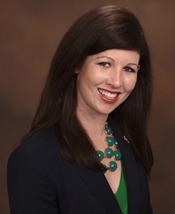Program Information
Validation of Plan Verification QA and Workflow Process Through Benchmark Plans for Commissioning of An MR-Guided Online Adapted Radiotherapy (ART) Program
K Mittauer*, P Hill , J Bayouth , University of Wisconsin, Madison, WI
Presentations
MO-L-GePD-J(A)-1 (Monday, July 31, 2017) 1:15 PM - 1:45 PM Room: Joint Imaging-Therapy ePoster Lounge - A
Purpose: To describe the commissioning of an online adaptive radiotherapy (ART) program, including the validation of a patient-specific calculation-based QA program and the feasibility of workflow processes for a clinical MR-guided radiotherapy (MRgRT) system.
Methods: 21 benchmark plans were designed with variable anatomical sites, planning modalities (IMRT, 3D), plan complexity (SBRT, differential dosing, conventional fractionation), and other configurations (normalization, orientation, data series, electron density overrides). To validate the ART workflow processes, benchmark plans were adapted on a clinical MRgRT system using four volunteers and a multi-modality phantom. A hard-stop in workflow process was implemented for volunteers, prior to delivery. To verify integrity of the online ART plans (integrity of TPS modeling and deliverability), patient-specific QA was measured for benchmark ART plans using a diode array and ion chamber. ART QA results were compared to historical non-ART measurement-based QA results. A Monte Carlo calculation-based patient-specific QA was implemented for purposes of online ART plan verification. To validate the calculation-based QA program, measured results were compared to calculated results for the benchmark plans. Time study was performed for a subset of the benchmark ART cases performed on volunteers.
Results: Workflow processes were feasible for all plans, except fixed 3D conformal (calculation point in air). ART QA measured results (mean of points passing 98.6±3%, n=21 plans) are in-line with non-ART measured QA (mean of points passing 98.9±1.8%, n=134 plans) for Gamma criteria 3%/3mm. Calculation-based QA served as a good surrogate for measurement-based QA. One false positive was observed for calculation-based QA results. The average time for the addition of ART processes was 25.6 ±17 minutes (maximum 40 minutes for gastroesophageal case, due to large interfraction changes at stomach-esophagus-interface requiring extensive re-contouring).
Conclusion: An online ART program and its workflow processes, including a calculation-based QA program, have been validated for a clinical MRgRT system.
Contact Email:
